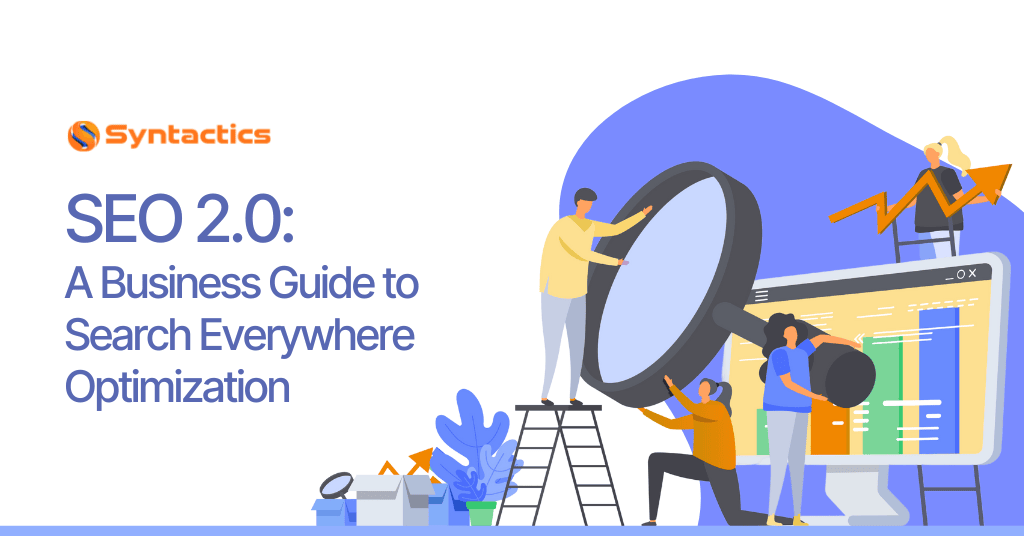
SEO 2.0: A Business Guide to Search Everywhere Optimization
Boost your brand beyond Google through Search Everywhere Optimization. Optimize for social, marketplaces, and AI with these winning strategies.
Expanding beyond Google can unlock more opportunities for your business. Today’s customers search for solutions across social channels, marketplaces, and even AI (Artificial Intelligence) tools. Thus, staying visible in this multi-channel landscape calls for a strategy that meets them where they are — that’s exactly what Search Everywhere Optimization is designed to do.
Source: Statista
Key Takeaways
- Search Everywhere Optimization expands your online presence across multiple search platforms so your customers can see you wherever they are.
- The new customer search journey is non-linear, requiring visibility at every stage of discovery and decision-making.
- Targeting is now conversational and platform-specific, not just keyword-based.
- Google remains dominant, but social platforms, marketplaces, and AI are on the rise.
TABLE OF CONTENTS
Introducing Search Everywhere Optimization for 2025
How Search Everywhere Optimization Works
Search Engine Optimization vs Search Everywhere: What’s the Difference?
The Winning Guide to Your SEO 2.0 Strategy
Building the Right Search Everywhere Strategy that Works
FAQs About Search Everywhere Optimization
Introducing Search Everywhere Optimization for 2025
As user behaviors change, people are increasingly using various platforms to search for products, services, and solutions. This shift requires expert digital marketing services to adapt their practices to optimize for these emerging channels.
Just as Google consistently evolves its algorithm to remain relevant, businesses are encouraged to expand their strategies to manage the growing diversity in search behaviors.
Search Everywhere Optimization is a new approach that can help businesses win visibility across search experiences. It supports brand awareness, generates traffic, and nurtures conversions.
How Search Everywhere Optimization Works
Search today is also no longer a straight path but a chain of platforms, each serving a different purpose.
For example, you’re shopping for a perfect pair of sneakers. You start watching videos on TikTok to check out the latest models and what’s trending. You hop onto Instagram or Facebook to browse and see how they fit into your lifestyle. You also check on Google for reviews and compare prices. Then, finally, land on marketplaces once your decision is nearly made.
This is the new SEO in action — your brand shows up on different platforms where buyer intent naturally builds.
Search Engine Optimization vs Search Everywhere: What’s the Difference?
Beyond Google and search journey, both have different metrics to track and target options.
The Winning Guide to Your SEO 2.0 Strategy
While it’s true that search everywhere is influenced by different search experiences and intent, here’s how to win on key channels that matter most.
According to StatCounter, Google remains the top search platform worldwide, with 89.74% market share. But that does not change the fact that search behavior is changing.
Here’s how to stay on top of Google’s evolving search landscape:
- Demonstrate E-E-A-T (Experience, Expertise, Authoritativeness, Trustworthiness) better.
- Structure content for searchability. Optimize page titles, headings, descriptions, and bullet points/lists. Add FAQs section and keep paragraphs short and concise.
- Enhance search results with optimized images and high-quality videos.
- Use internal links and speed up your site.
TikTok and Instagram
Besides Facebook, social channels like TikTok and Instagram are already considered search engines — often the first stop for users beginning their online shopping journey.
To optimize your content for these social media platforms, follow these practices:
- Use keywords in titles, captions, and hashtags to make your content easily discoverable.
- Hook viewers in the first three seconds with bold visuals and statements.
- Follow trending sounds and hashtags to ride the algorithm’s wave.
- Encourage likes, shares, and comments to signal value to the platform’s algorithm.
- Maintain regular posting without overwhelming yourself.
Find out how you can develop an effective TikTok marketing strategy in this blog:
YouTube
Backlinko revealed YouTube has over 2.49 billion Monthly Active Users (MAU), making it the second largest search platform worldwide. By maximizing its potential, it can drive massive visibility, engagement, and conversions.
Here’s how to do it the right way:
- Craft a clear, catchy video title with your focused keyword to boost clicks and rankings.
- Leverage video descriptions, such as adding summaries and links to guide viewers.
- Implement broad and niche tags to help YouTube categorize your content.
- Design high-quality thumbnails with minimal text to catch attention.
- Add timestamps and chapters to improve navigation and retention.
- Upload accurate subtitles and closed captions to boost searchability.
- Use cards and timed end screens to keep viewers engaged longer.
- Create keyword-rich playlists to organize content.
Shopify and Woocommerce
BuiltWith revealed that Shopify has over 6 million live websites, while Woocommerce has more than 7 million active sites. This means more businesses are competing for organic traffic in both ecosystems.
To stand out in the crowd, follow these actionable strategies:
- Prioritize high-intent, buyer-focused keywords in your title to boost conversions.
- Optimize listings with quality images and bullet points addressing customer pain points.
- Encourage positive reviews and quickly resolve negative feedback to build trust.
- Stay competitive with pricing tools and maintain stock levels to avoid ranking drops.
- Use backend keywords, including hidden, relevant search terms, and synonyms.
AI-Powered Search
AI tools are rewriting the rulebook on how people find information. In fact, Exploding Topics reported that over 15% of U.S. adults are using ChatGPT as the primary platform for finding answers. Thus, it became a go-to search engine for customers as well.
However, AI-powered assistants don’t simply rely on keywords; they also assess the entire context of the search query to provide relevant responses. If your content is clear, concise, and well-structured, AI assistants can easily recognize its value and surface more in the platform frequently.
Here’s how to optimize content for AI:
- Use a conversational tone to make your content approachable for both AI and readers.
- Go beyond surface-level information that addresses the audience’s needs and challenges.
- Structure your content with clear headings and concise paragraphs to enhance readability.
- Combine high-quality content with SEO best practices to ensure value and discoverability.
- Ensure your content is always aligned with the latest industry trends and audience needs.
Check out this article to learn more about how you can leverage AI for content:
Building the Right Search Everywhere Strategy that Works
A winning strategy isn’t just being present everywhere — it’s about creating impact where it matters most. Definitely, it’s not about posting similar content across different platforms.
Below are best practices for building a search everywhere strategy:
Focus on the Right Platforms
While it is true that being found everywhere is essential, it’s more effective to focus on where your audience actually searches.
You can use Google Analytics to see where your referral traffic comes from. Same goes with YouTube analytics where you get to discover what search terms drive video views. These insights can help you understand which channels are the most effective to optimize your strategy and focus your efforts where they matter most.
Match Content to Search Intent
Tailor your content to match how people search on each platform. Different platforms have different user behaviors, and your content should reflect that.
- Google: Deep search, how-to content, thought leadership
- TikTok: Quick tips, trends, fast visuals
- Instagram: Discovery through visuals and lifestyle storytelling
- Shopify and Woocommerce: High-intent product searches
- AI Tools: Fast, summarized answers.
Look Beyond Views — Prioritize Results
Traffic is good, but conversions are way better. A 5-second reel may go viral, but it may not mean much if you have no leads. Focus on the platforms that actually drive action. As such, you can determine how well it can generate meaningful actions to your preferred platform.
Repurpose, Don’t Rewrite
Crafting content from scratch for every platform may be an effective strategy, but it takes time to drive results. The smartest way is to repurpose strategically.
For example, make your Google article have long-form, keyword-rich, SEO-focused content. Then, design an Instagram carousel with visually appealing short tips. Provide an in-depth walkthrough with expert tips on YouTube or a 30-second summary with music and hooks on TikTok — all in the same content but new formats.
This approach puts you in front of more users, gives your audience content in the style they prefer, and increases your ranking potential.
Track What Works and What Doesn’t
Showing up is only your starting point. The actual work begins by optimizing based on what’s performing. Use tools to track what drives clicks, views, and conversions, such as Google Analytics, Semrush, vidIQ, and more.
Evaluate, track, and analyze the following metrics:
- Impressions are what people are seeing you.
- Engagement is how people are interacting with you.
- Conversions are if your efforts are leading to actual sales.
Conclusion
Optimizing beyond traditional search engines represents a pivotal shift in how businesses build digital visibility. With search now fragmented across platforms, aligning your strategy with user behavior and intent is no longer optional — it’s essential.
By focusing on user experience, creating content tailored for various channels, and continuous optimization, you’re more than just keeping up. You’re also building a solid SEO 2.0 strategy that delivers real, scalable results.
Elevate Your Brand In the Digital Landscape!
- SEO: Boost your rankings and drive organic traffic.
- Content Marketing: Engage your audience with content that converts.
- Social Media Management: Build your brand and connect with the right people.
- Paid Ads: Maximize ROI with data-driven advertising campaigns.

FAQs About Search Everywhere Optimization
Why should businesses care about the search everywhere?
Customers nowadays don’t just search on traditional platforms like Google. They utilize TikTok, Instagram, YouTube, marketplaces, and AI tools to satisfy their search intent. Showing up across these channels helps high-intent buyers to see you.
Can I implement the new SEO for my e-commerce business?
Yes. E-commerce businesses can optimize product listings for traditional search, repurpose content for social platforms, and structure content with FAQs for AI-powered search.
What are the challenges and solutions in search everywhere optimization?
Most digital marketing agencies operate in silos where SEO, paid ads, content, and social run separately. This leads to inconsistent messaging, missed insights, and wasted resources.
The solution is to treat them separately. Traditional search values relevance; social search values engagement. Understanding how each platform works helps businesses (or marketers) connect them into one clear growth strategy.
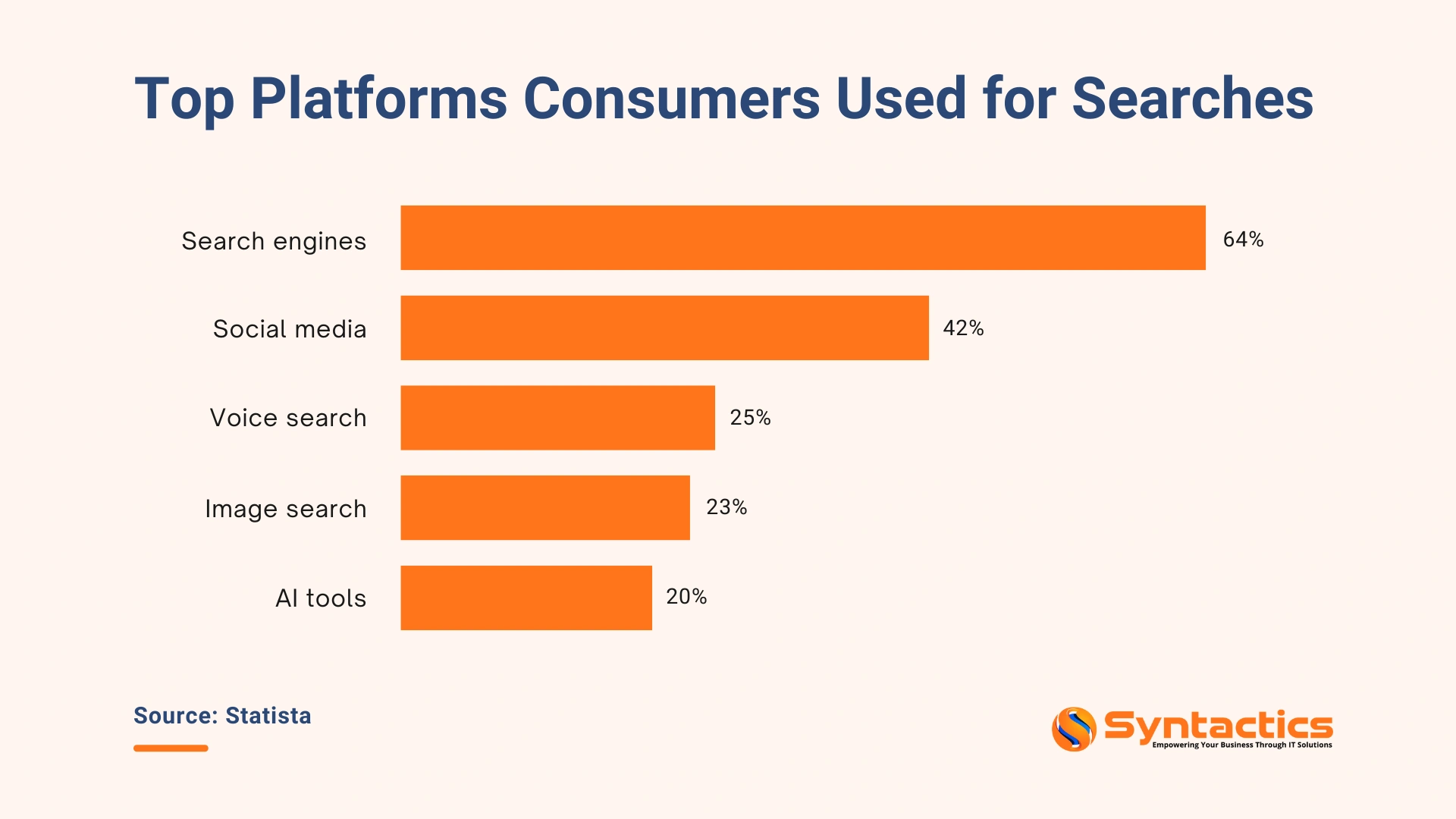
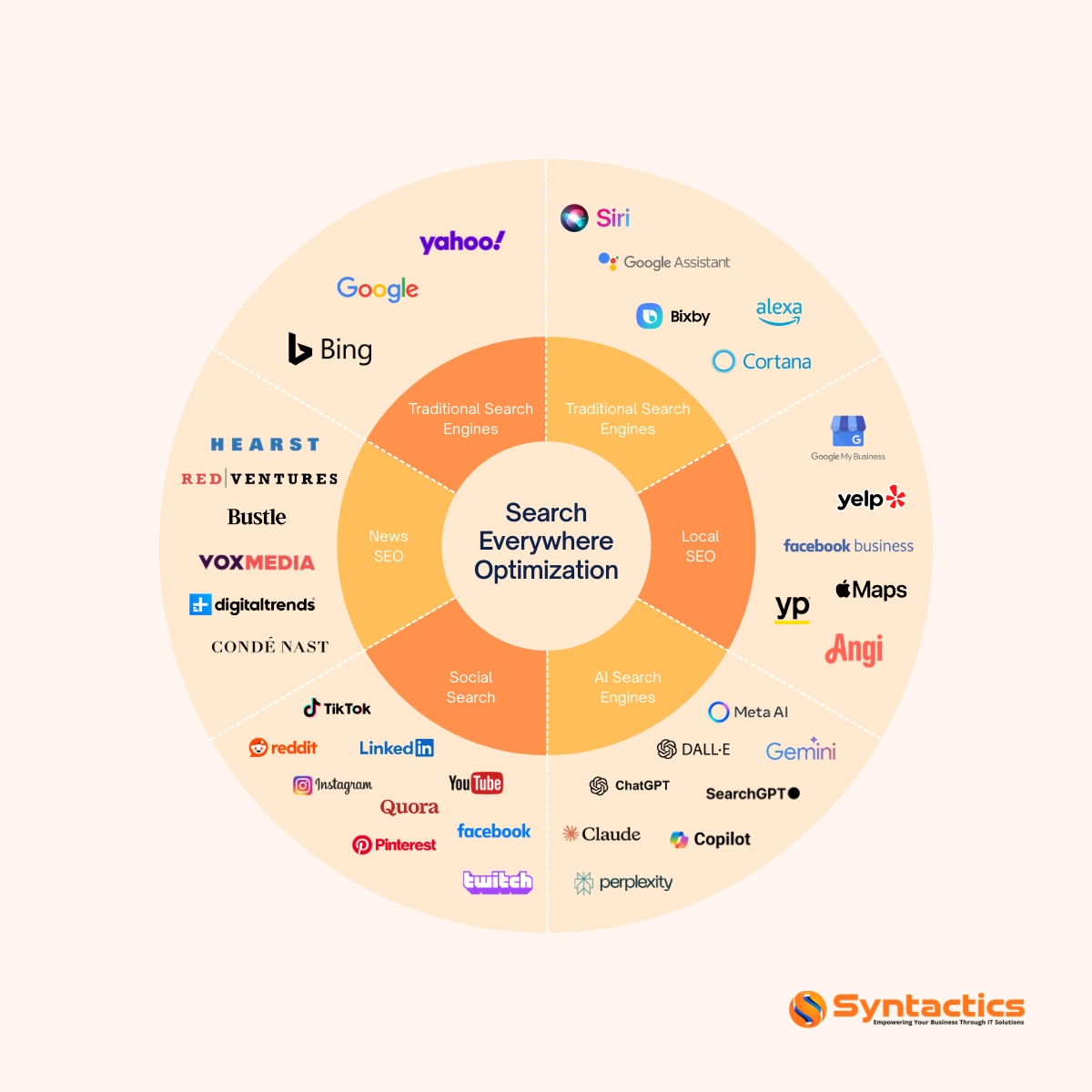
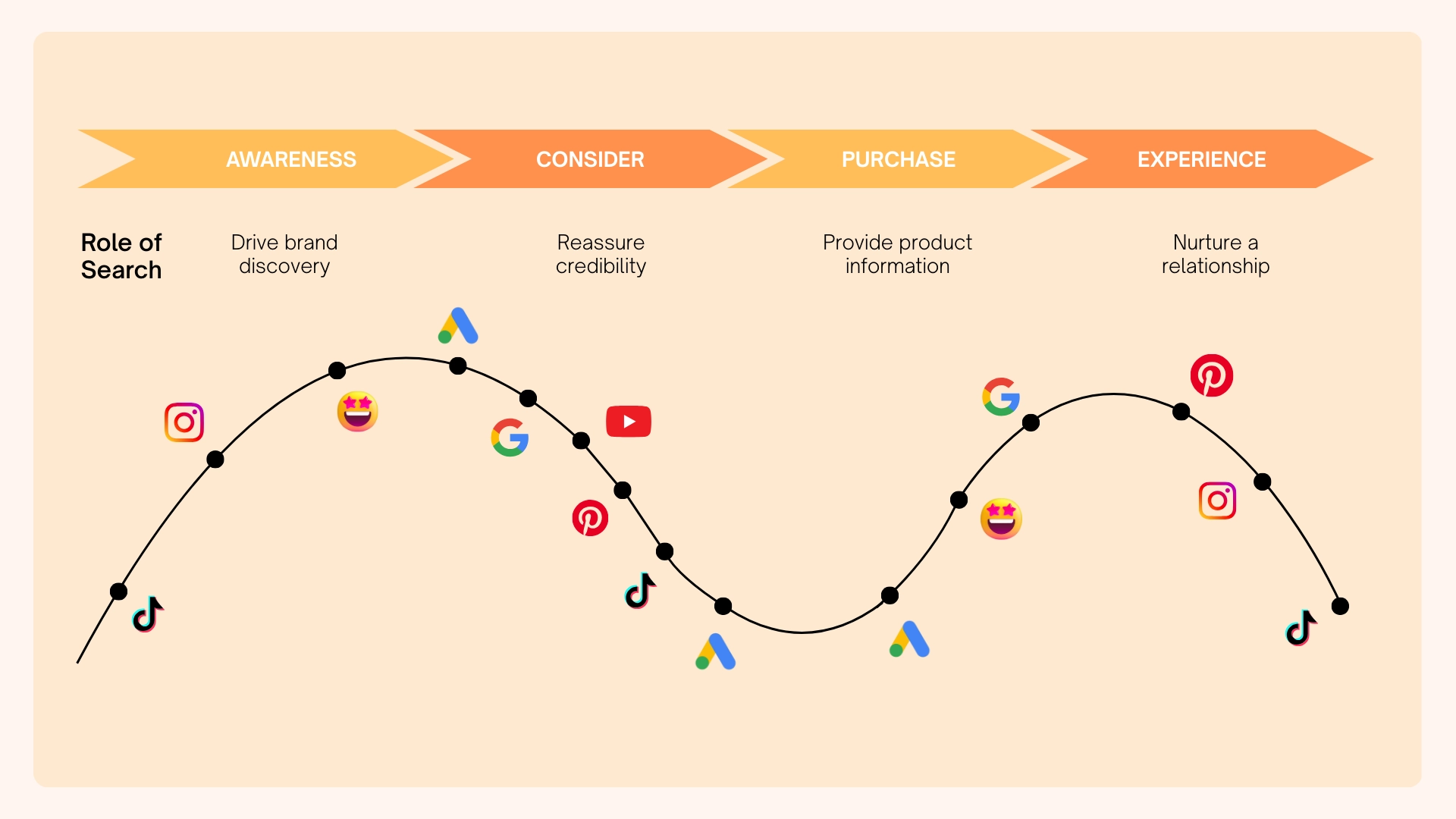
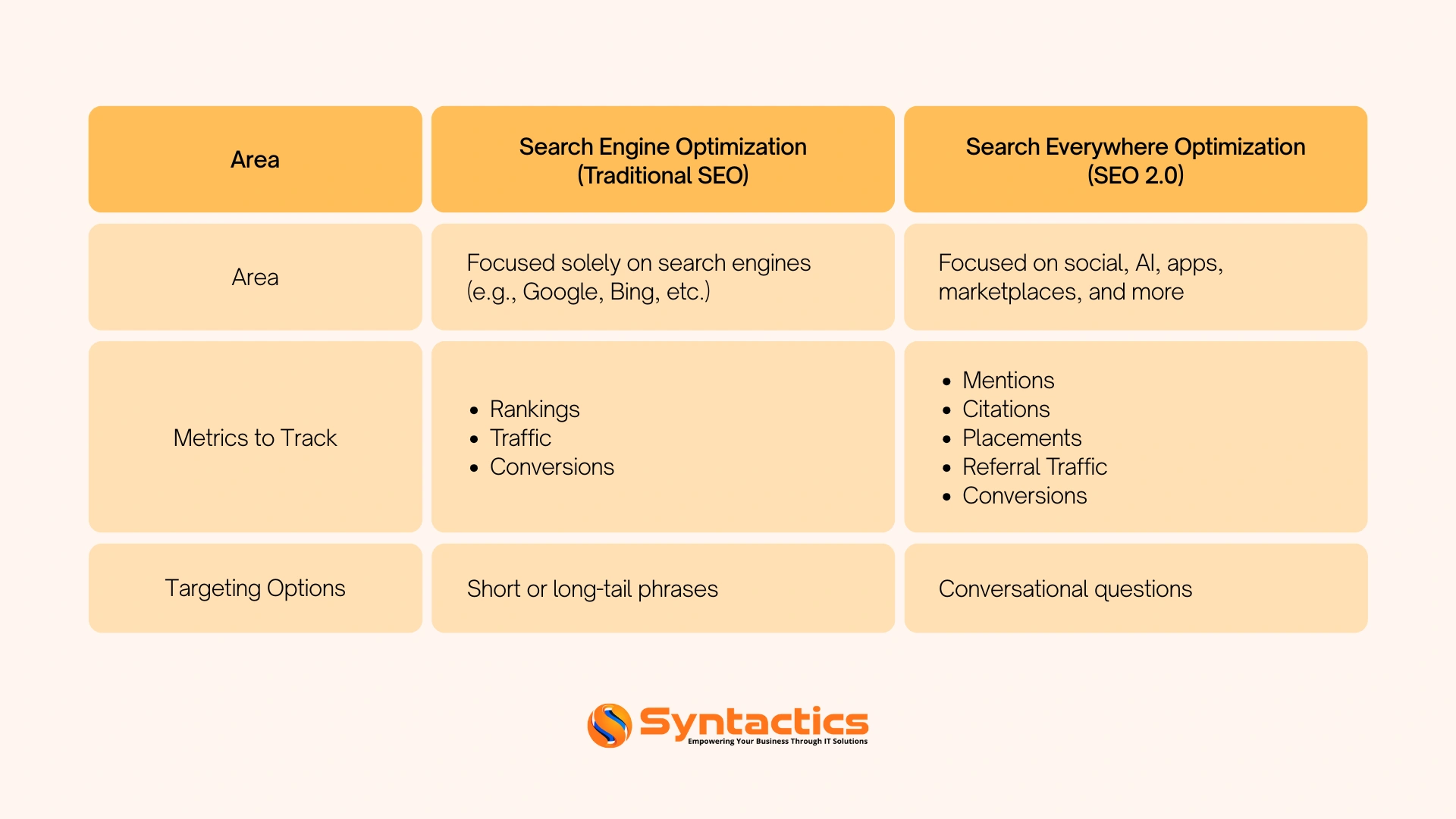
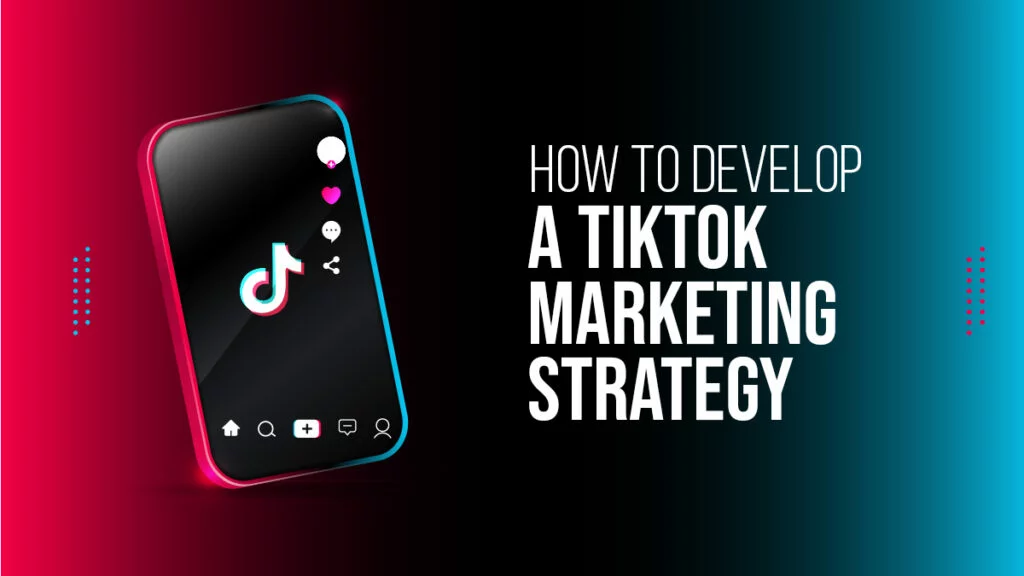
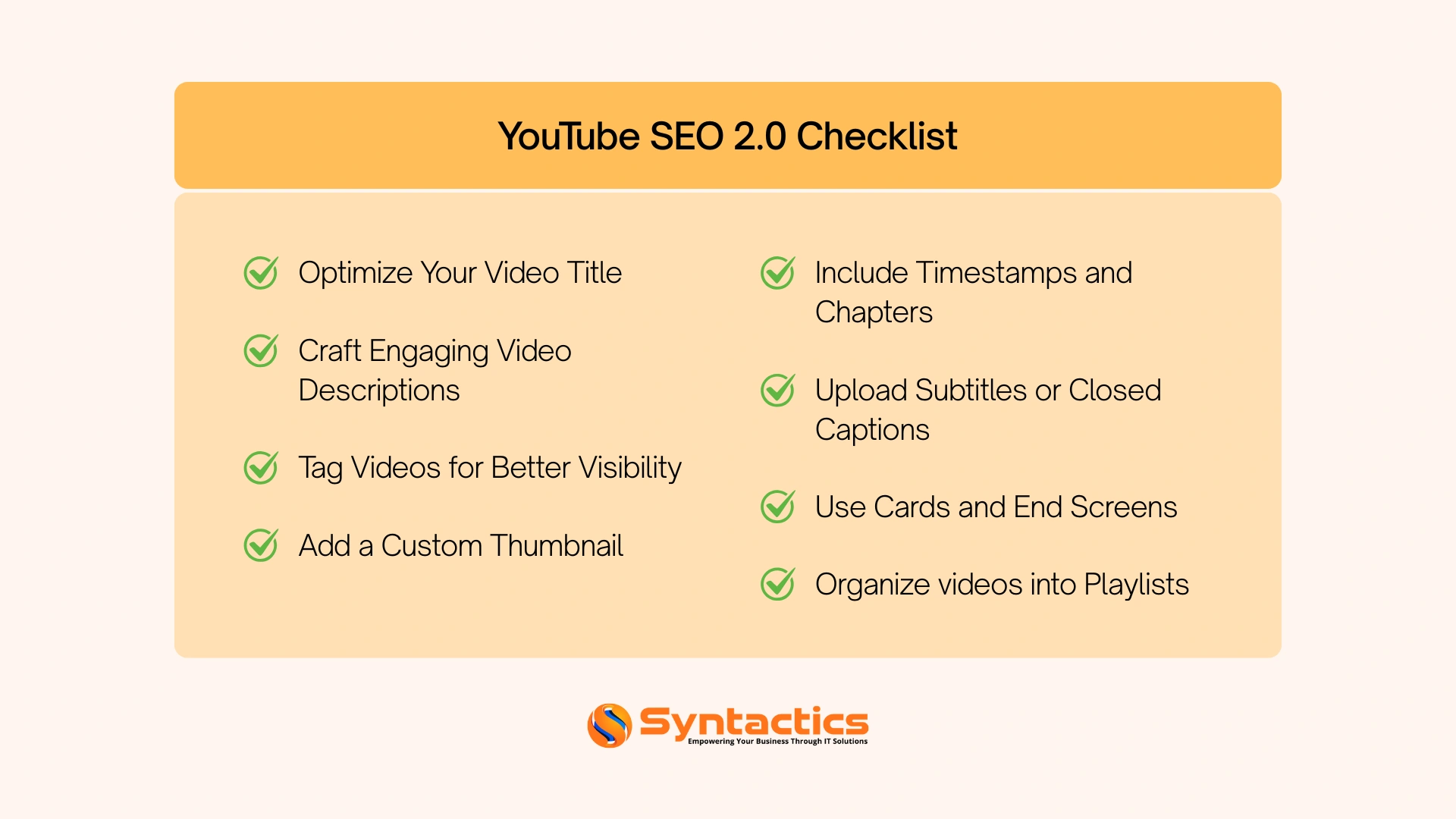
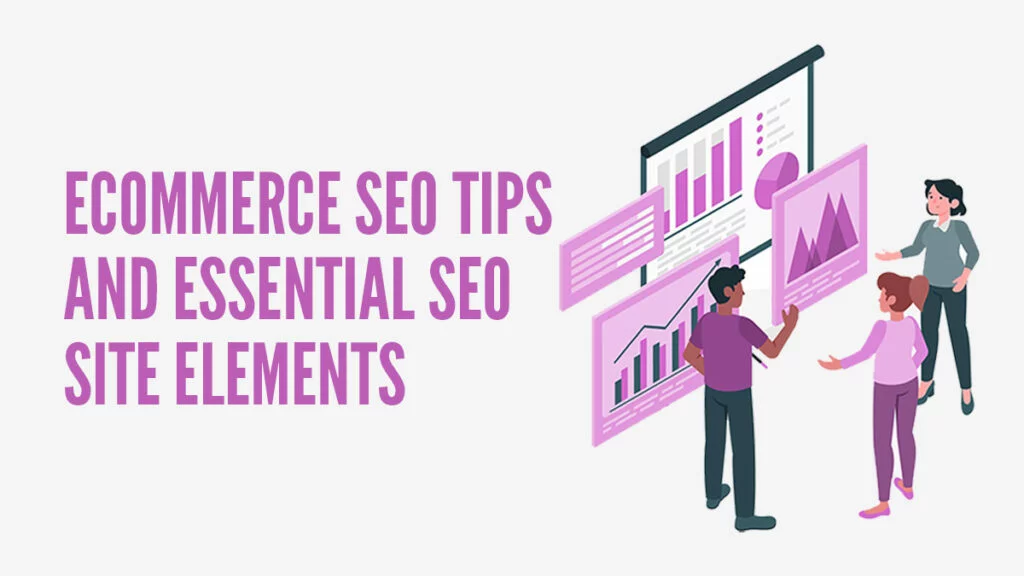
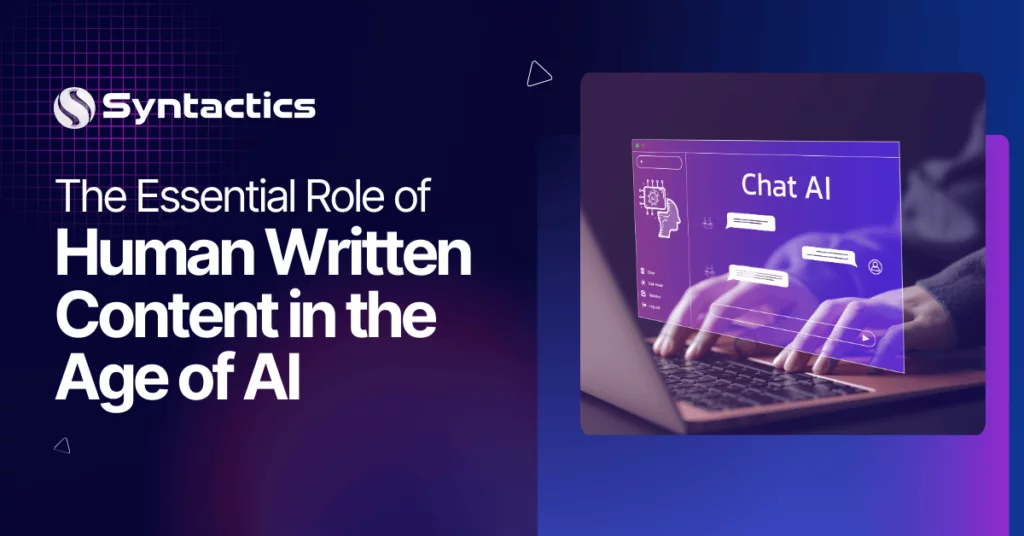




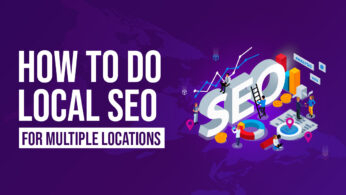
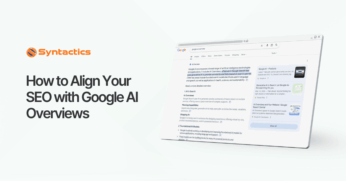

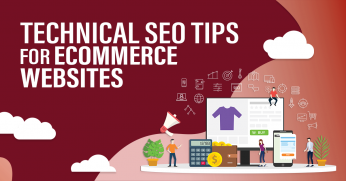









Comment 0